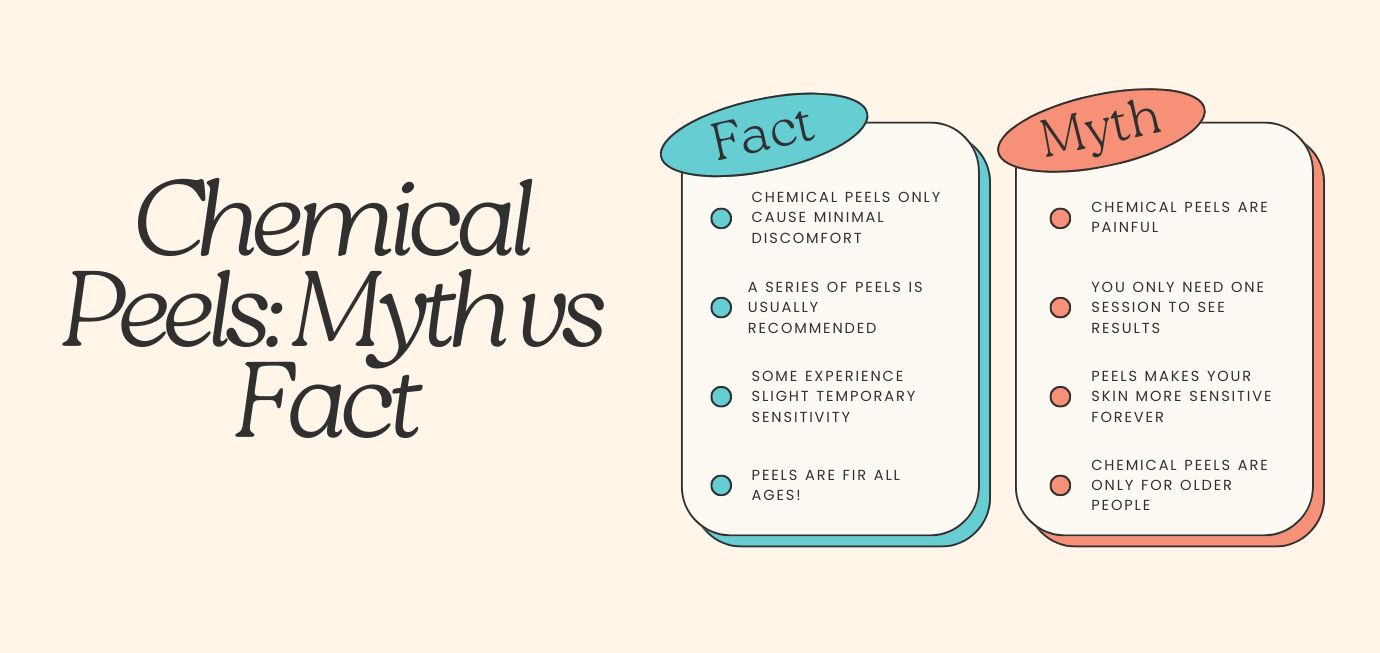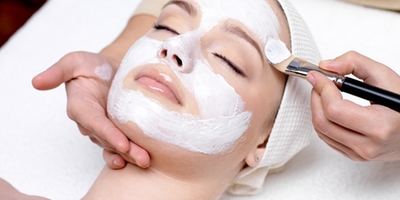How do chemical peels work?
Chemical peels work by applying a chemical solution to the skin, which causes controlled damage to the top layers. This process stimulates the skin's natural healing response, leading to the shedding of damaged skin cells and the regeneration of healthier, smoother skin. The chemicals used in the peel can vary in strength, with mild peels targeting the outermost layer of the skin, while deeper peels penetrate deeper into the skin. The choice of peel will depend on your specific skin concerns and desired outcomes.
One of the primary components used in chemical peels is alpha-hydroxy acids (AHAs), such as glycolic acid and lactic acid. These acids exfoliate the skin and promote cell turnover, effectively removing dead skin cells and revealing a fresher, more youthful complexion. Another commonly used ingredient is salicylic acid, which is particularly effective for treating acne-prone skin by unclogging pores and reducing inflammation. Other chemical peels may include trichloroacetic acid (TCA) or phenol, which are stronger and can address more severe skin issues.

Benefits of chemical peels
Chemical peels offer a wide range of benefits for individuals seeking to improve the appearance and texture of their skin. Here are some key advantages you can expect from a chemical peel:
- Improved skin texture: Chemical peels can reduce the appearance of fine lines and wrinkles, acne scars, and sun damage, resulting in smoother and more even skin texture.
- Reduced hyperpigmentation: Chemical peels can help lighten areas of hyperpigmentation, such as age spots, melasma, and sunspots, revealing a more uniform complexion.
- Acne control: Chemical peels can effectively target acne and breakouts by unclogging pores, reducing oil production, and promoting cell turnover.
- Boosted collagen production: The controlled damage caused by chemical peels stimulates collagen production, which leads to firmer, plumper skin.
- Enhanced skin radiance: Chemical peels can restore a youthful glow to your skin by removing dull, dead skin cells and revealing a brighter complexion.
What to expect during a chemical peel procedure
Before undergoing a chemical peel, it is essential to consult with a qualified aesthetic professional who will assess your skin and determine the appropriate peel for your needs. Here is an overview of what you can expect during a chemical peel procedure:
- Cleansing and preparation: Your skin will be thoroughly cleansed to remove any dirt, oil, or makeup. The aesthetic professional may also apply a pre-peel solution to prepare your skin for the treatment.
- Application of the chemical peel: The chemical solution will be carefully applied to your skin using a brush or sponge. You may experience a tingling or mild stinging sensation during this process, which is normal.
- Peeling process: Depending on the type of peel, you may experience varying degrees of peeling and flaking over the next few days or weeks. It is crucial to follow the aftercare instructions to ensure proper healing.
- Post-peel treatment: After the peel, a soothing mask or moisturiser may be applied to your skin to calm any irritation and promote healing. Your aesthetic professional will also provide you with specific instructions on how to care for your skin post-peel.
Risks and side effects of chemical peels
While chemical peels are generally safe when performed by a trained professional, there are some potential risks and side effects to be aware of. These can vary depending on the depth and strength of the peel used. Here are some common side effects:
- Redness and irritation: Mild redness and irritation are common immediately following a chemical peel. This usually subsides within a few hours or days.
- Peeling and flaking: Depending on the type of peel, you may experience peeling and flaking of the skin for several days or weeks after the procedure.
- Sensitivity to sunlight: Your skin may be more sensitive to sunlight after a chemical peel. It is crucial to wear sunscreen and avoid excessive sun exposure to protect your newly treated skin.
- Infection and scarring: Although rare, there is a slight risk of infection and scarring if proper aftercare instructions are not followed or if the peel is too aggressive.
- Hyperpigmentation or hypopigmentation: In some cases, chemical peels can cause temporary changes in skin pigmentation. This can manifest as darkening (hyperpigmentation) or lightening (hypopigmentation) of the treated areas.
Aftercare for chemical peels
The success of your chemical peel treatment greatly depends on proper aftercare. Here are some essential aftercare tips to ensure optimal healing and results:
- Follow the instructions: Carefully follow the aftercare instructions provided by your aesthetic professional. These may include avoiding sun exposure, using gentle skincare products, and moisturising regularly.
- Protect your skin: Apply sunscreen with a high SPF, even when indoors, to shield your skin from harmful UV rays.
- Avoid picking or scratching: It's important to resist the temptation to pick or scratch any peeling or flaking skin, as this can lead to scarring or infection.
- Stay hydrated: Drink plenty of water to keep your skin hydrated and promote healing.
- Be patient: Results from chemical peels may take time to fully manifest. It is crucial to be patient and allow your skin to heal naturally.
Book your chemical peel at Aesthetic Medispa in Essex
In conclusion, chemical peels in Essex are a proven and effective method for improving the appearance of your skin. They work by stimulating the skin's natural healing process, resulting in smoother texture, reduced hyperpigmentation, acne control, boosted collagen production, and enhanced skin radiance. However, it is essential to consult with one of our qualified aesthetic professionals and follow proper aftercare instructions to minimise potential risks and maximise the benefits of the treatment.
Book your chemical peel treatment with us at our Buckhurst Hill clinic in Essex and let our experienced professionals help you achieve the skin you desire!
For more information about Aesthetic Medispa, visit our Facebook!

